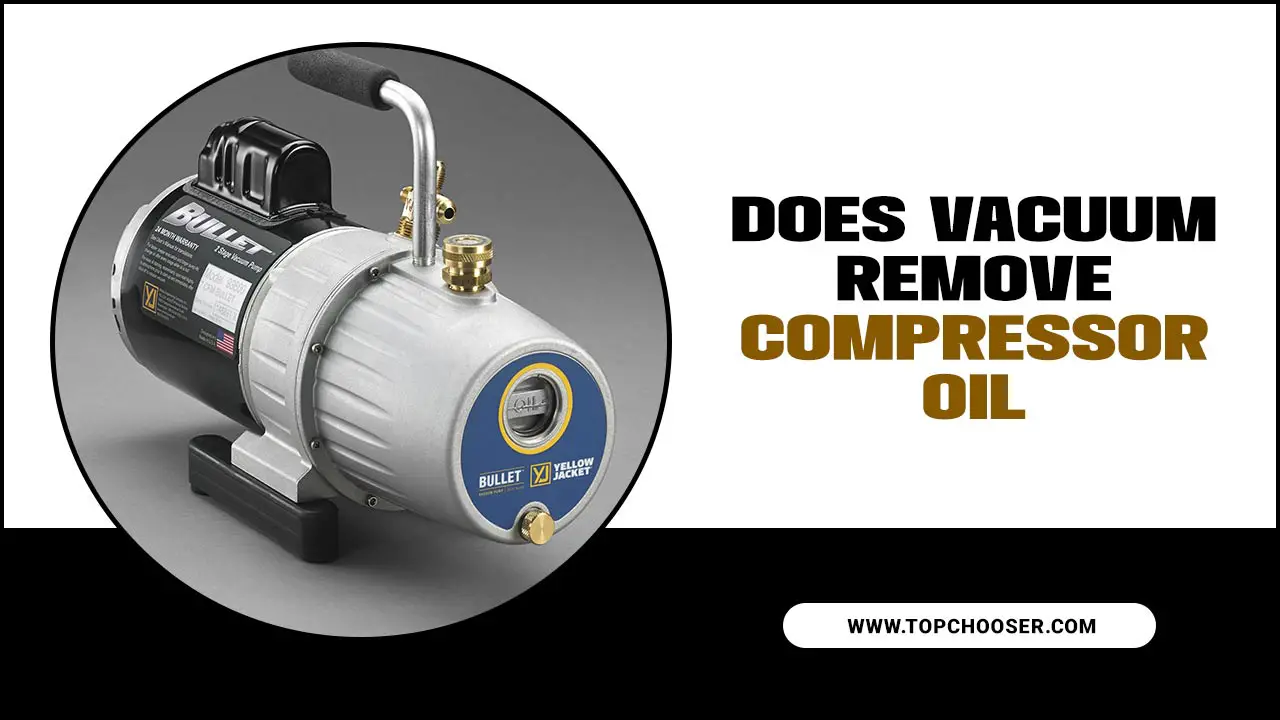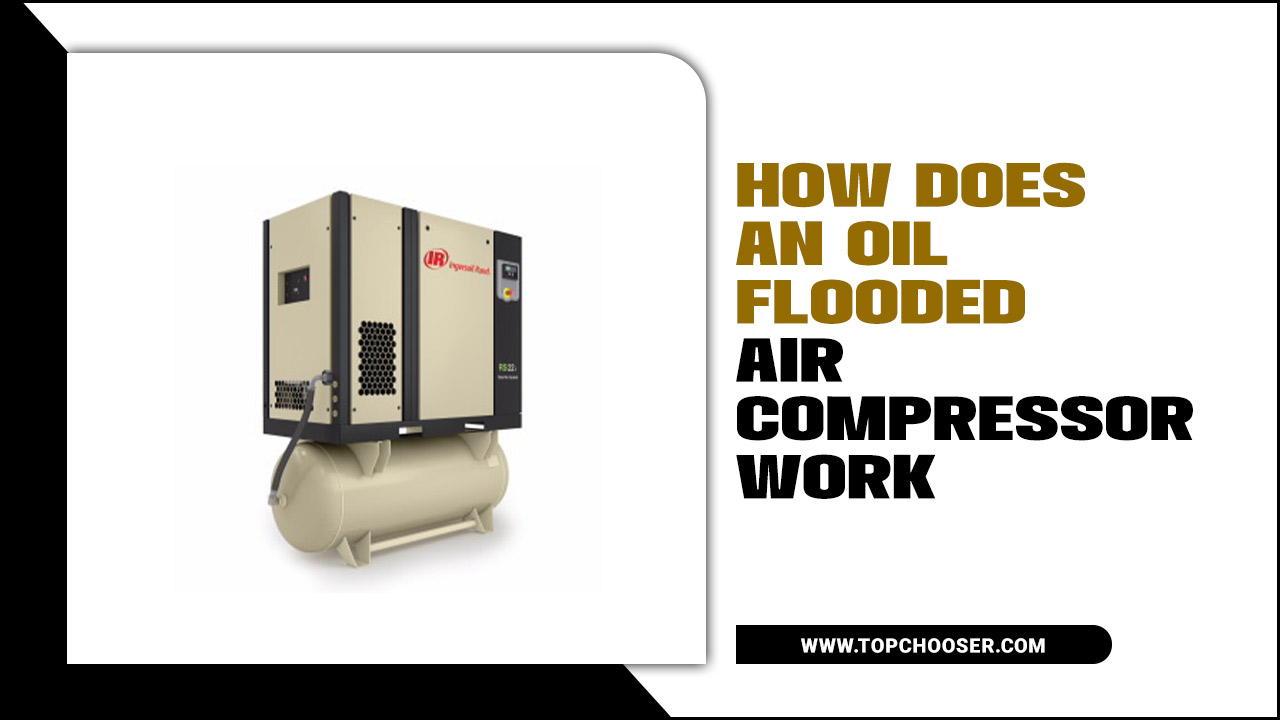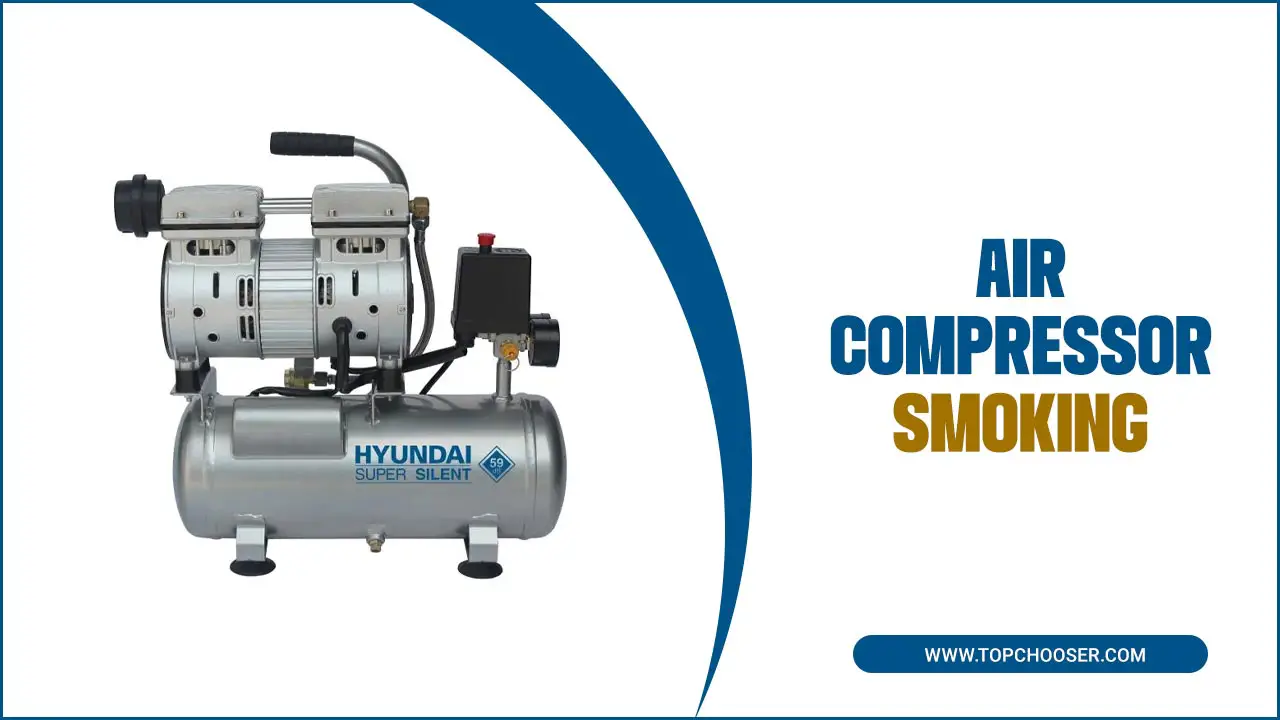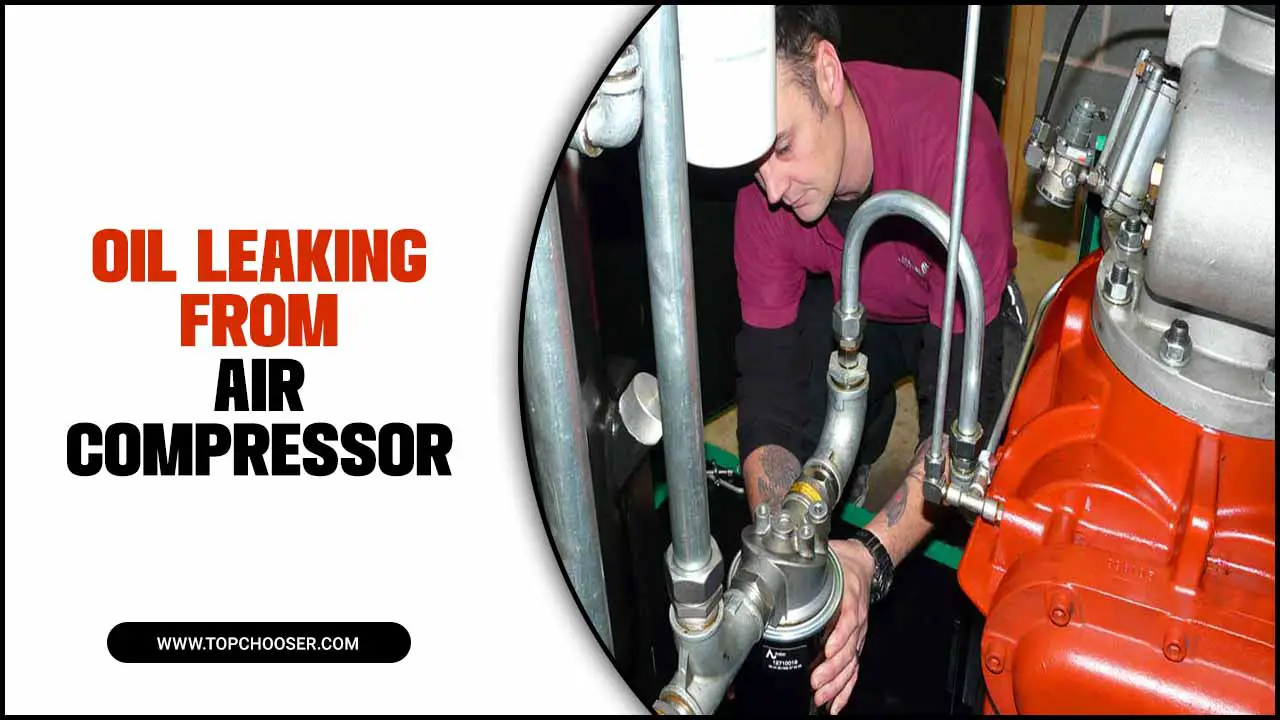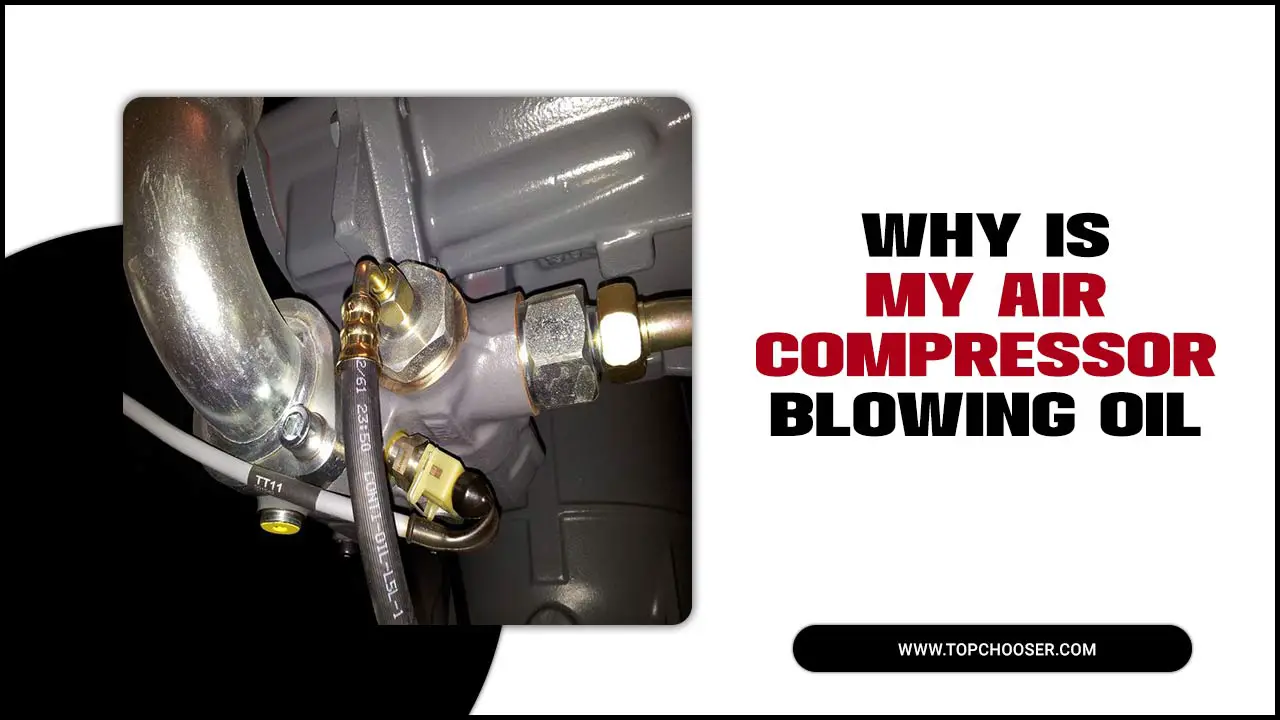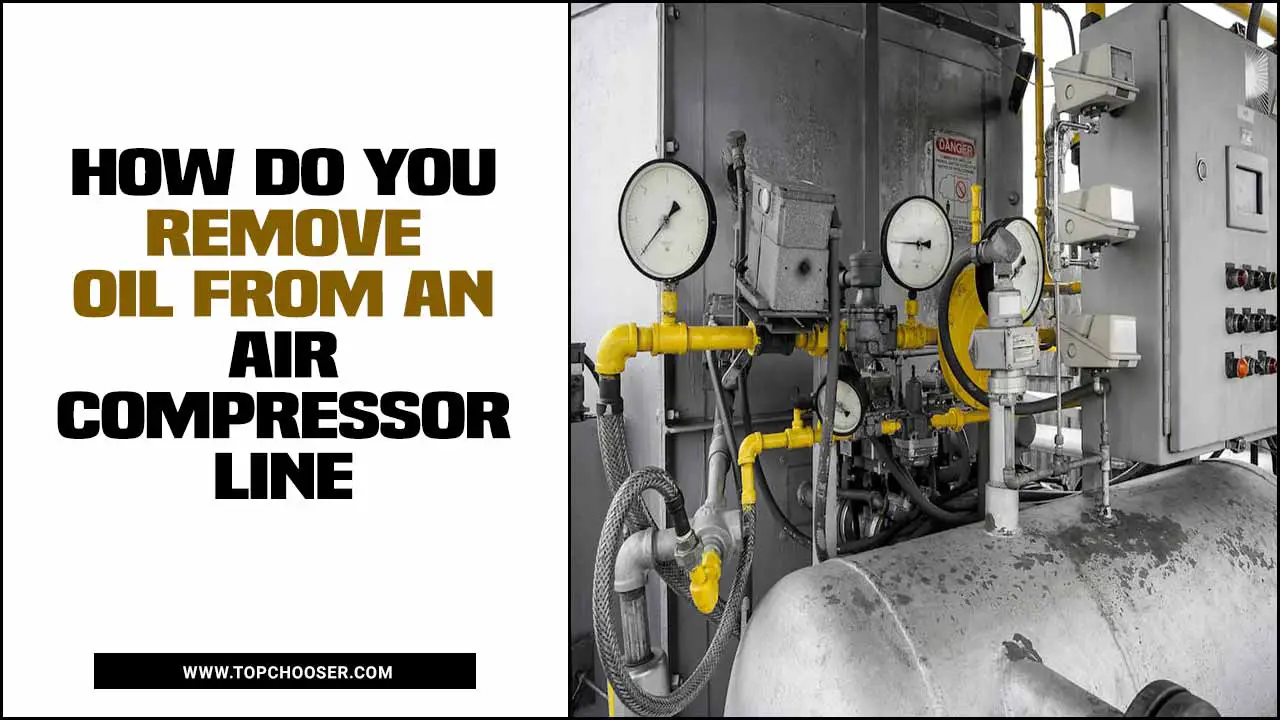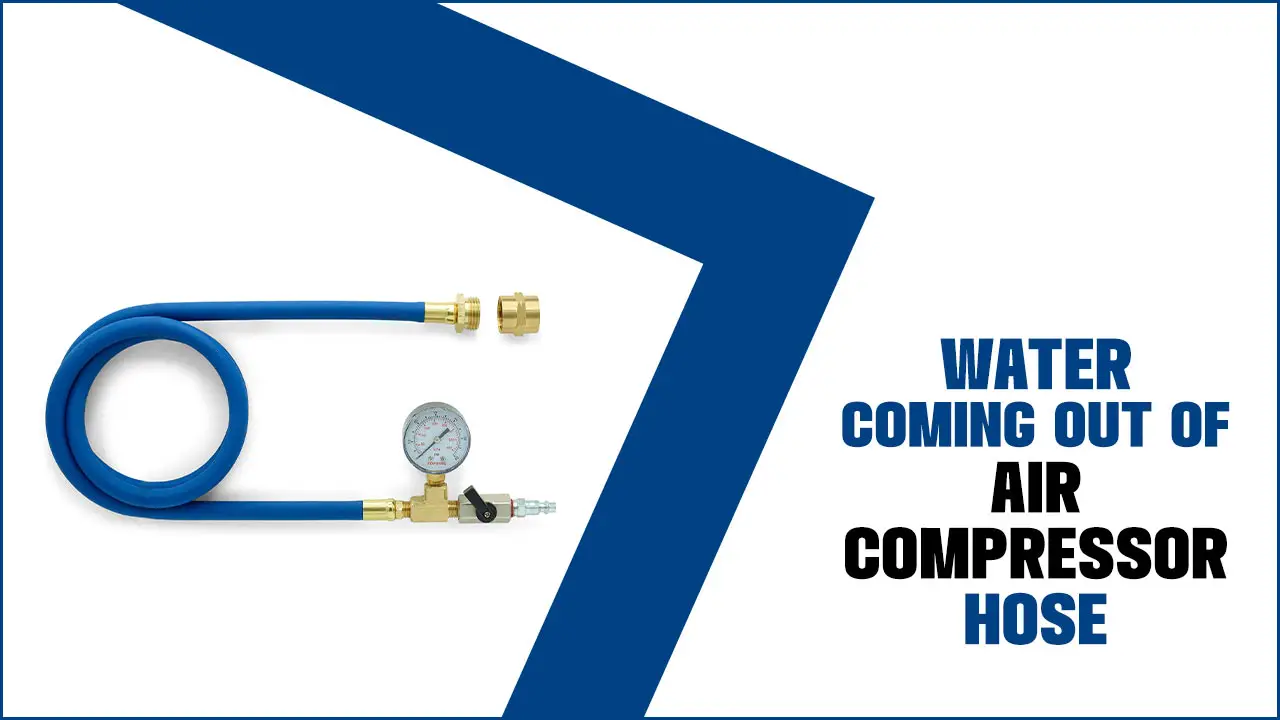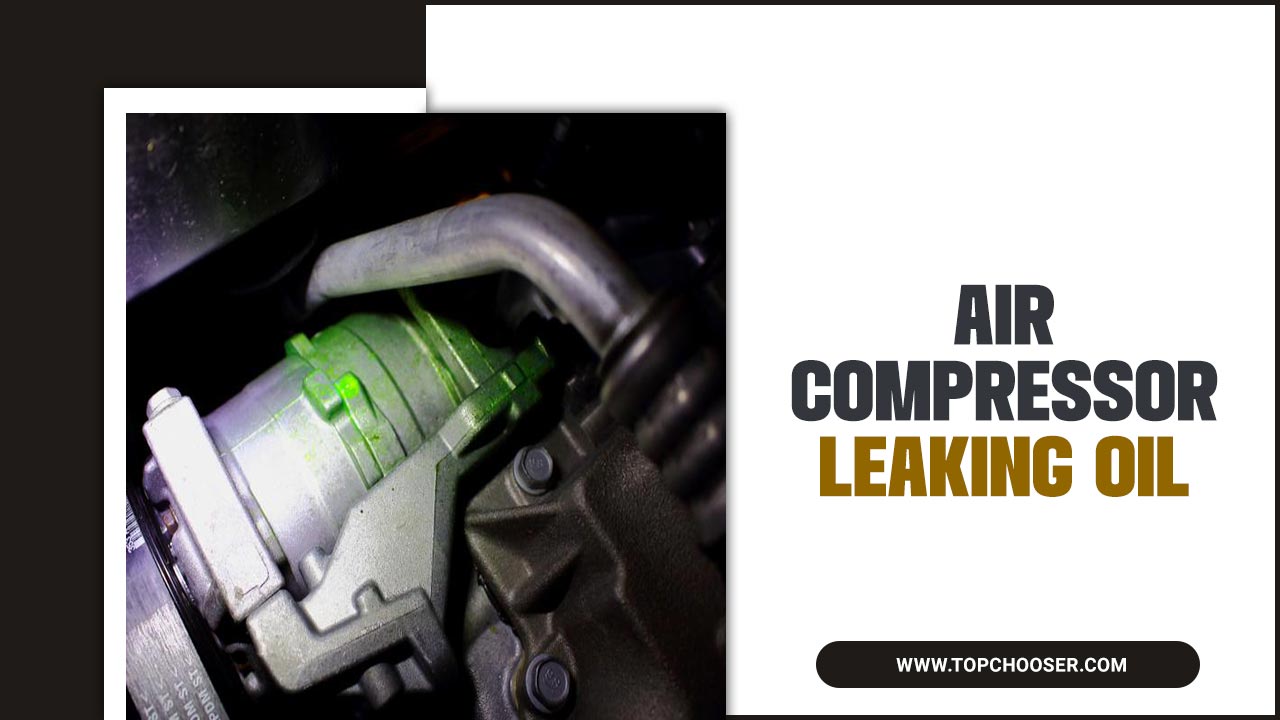Air compressors are essential tools in many industries, from construction to manufacturing. They help power a variety of pneumatic tools and equipment.
However, one common problem that air compressor owners face is oil leakage, which can cause damage to the compressor and create safety hazards. We will provide a complete guide on how to stop an air compressor from blowing oil. We will start by explaining what an air compressor is and what causes it to blow oil.
Then, we will outline the tools and materials required for the repair process. After that, we will provide six easy ways to stop your air compressor from blowing oil as preventive and emergency measures. We will share some tips for preventing air compressors from blowing oil in the first place so that you can keep your equipment running smoothly.
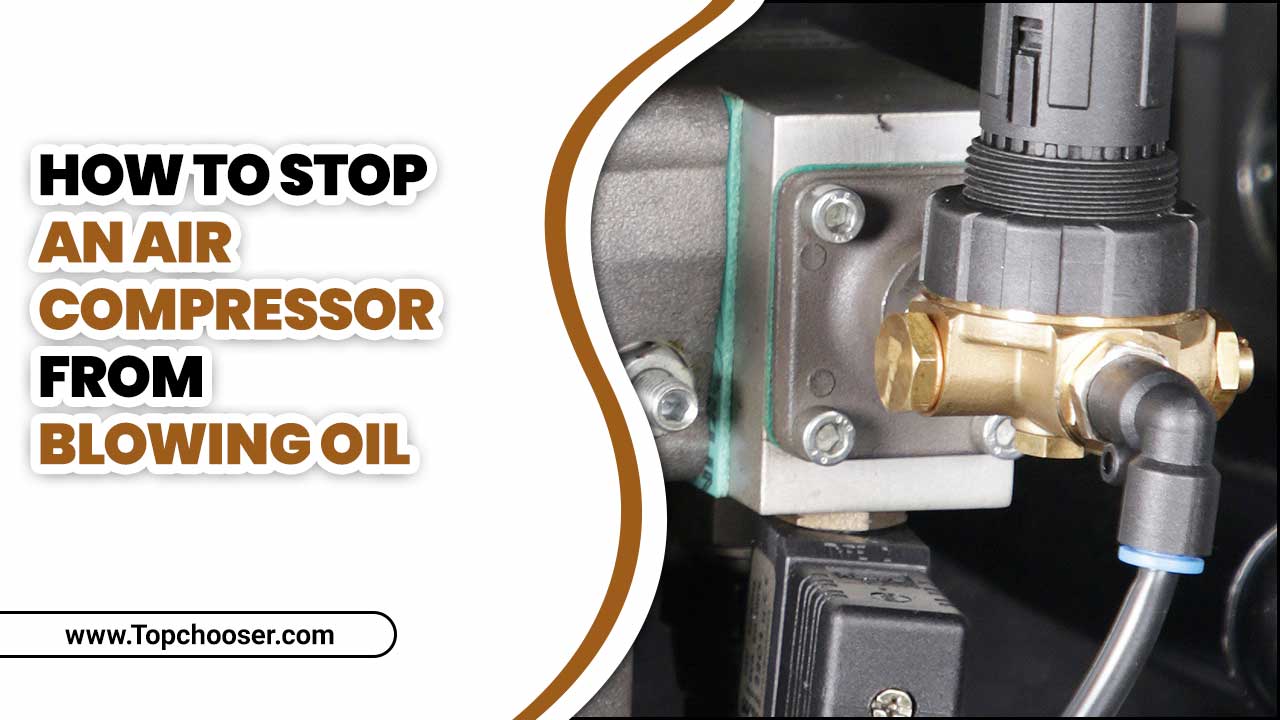
What Is Air Compressor From Blowing Oil
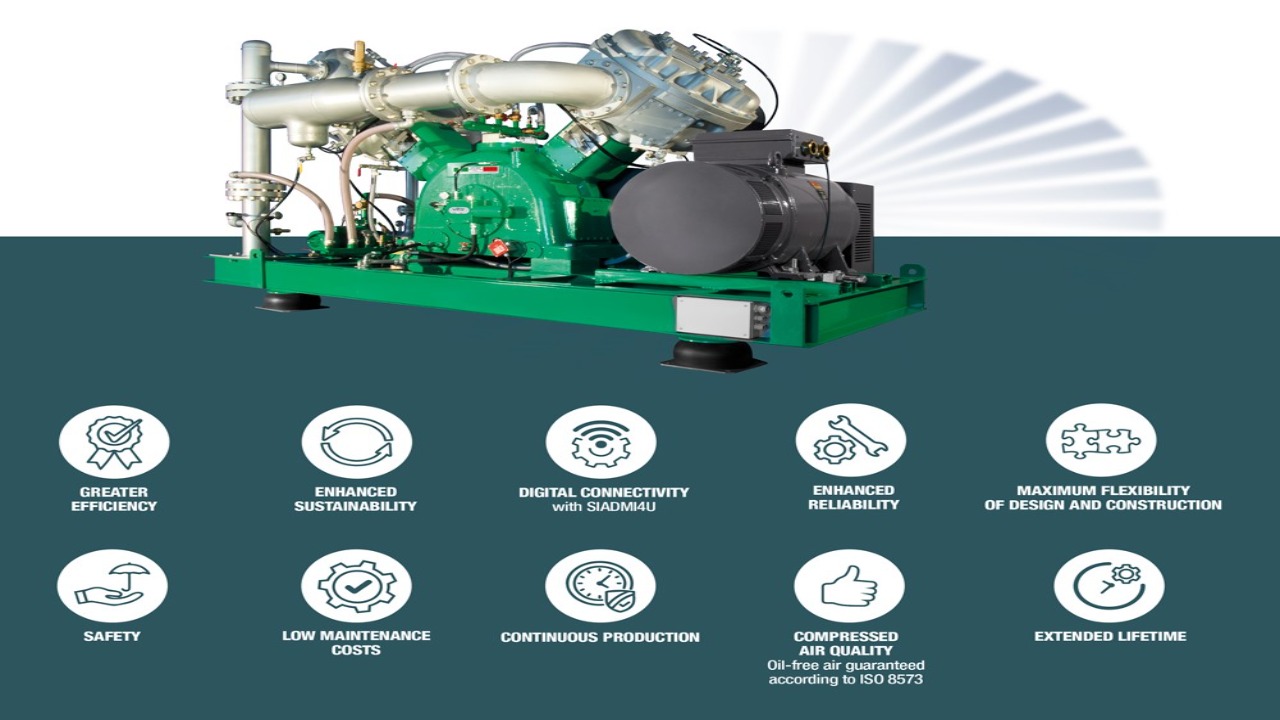
An air compressor blowing oil refers to a situation where the compressor is expelling or spraying oil along with the compressed air. This can happen due to various reasons, such as worn-out piston rings, damaged seals, or excessive oil levels.
It is important to identify and fix the underlying issue causing the oil to be blown out, as it can affect the performance and efficiency of the air compressor. Regular maintenance and proper troubleshooting can help prevent or resolve this problem.
What Causes Air Compressors To Blow Oil?
Air compressors may blow oil for a variety of reasons. Here are some common causes. If your air compressor is blowing oil, it is important to address the issue promptly to prevent further damage. Consulting a professional or referring to the manufacturer’s guidelines can help you diagnose and resolve the problem effectively.
- Overfilling The Oil Reservoir: If the oil level in the compressor is too high, it can lead to excessive pressure and cause the oil to be blown out.
- Worn Piston Rings Or Valve Seals: When the piston rings or valve seals become worn, they can allow oil to leak into the compression chamber, which can then be blown out of the compressor.
- High Compressor Temperatures: Excessive heat can cause the oil in the compressor to break down and become thinner, leading to increased oil consumption and blowout.
- Clogged Or Dirty Air Filters: A clogged or dirty air filter can restrict airflow and increase pressure within the compressor, causing the oil to be forced out.
Addressing these potential causes and regularly maintaining your air compressor can help prevent oil blowouts and ensure optimal performance.
Tools And Materials Required For The Repair
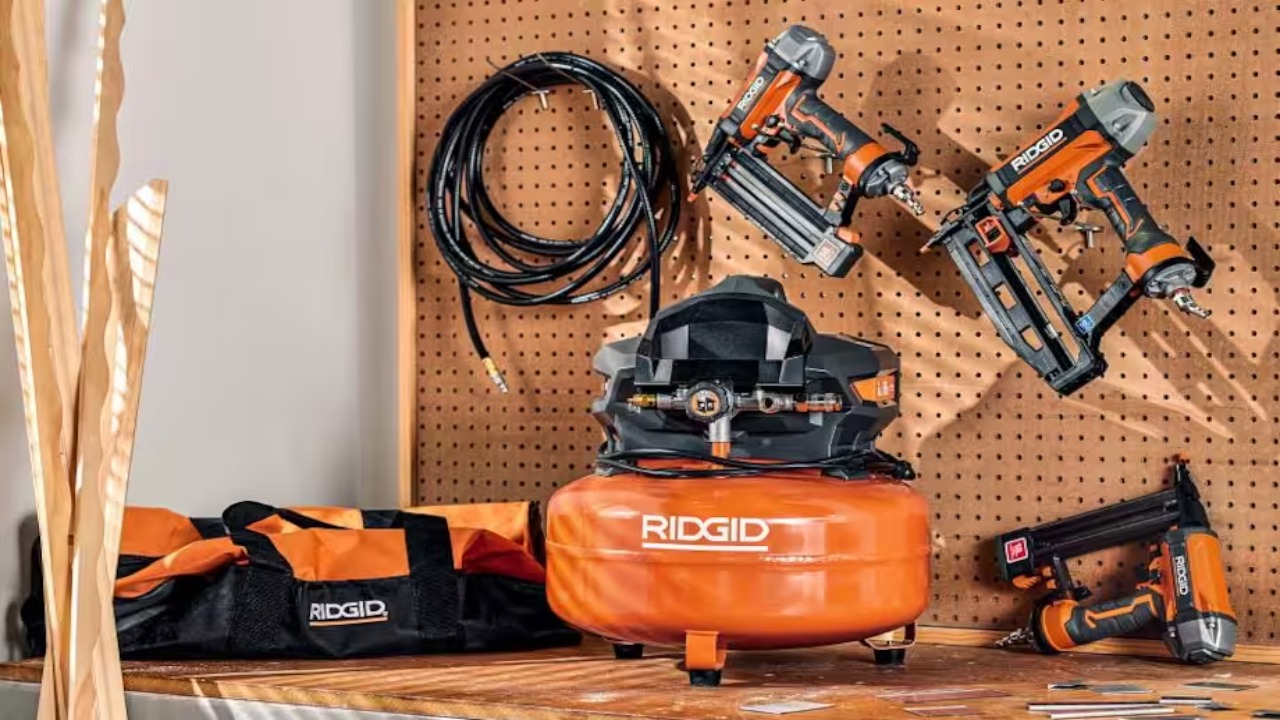
- Wrench or socket set
- Replacement gaskets or seals
- Oil filter
- New oil
- Rag or absorbent material
- Safety glasses and gloves
How To Stop An Air Compressor From Blowing Oil? – 9 Easy Ways
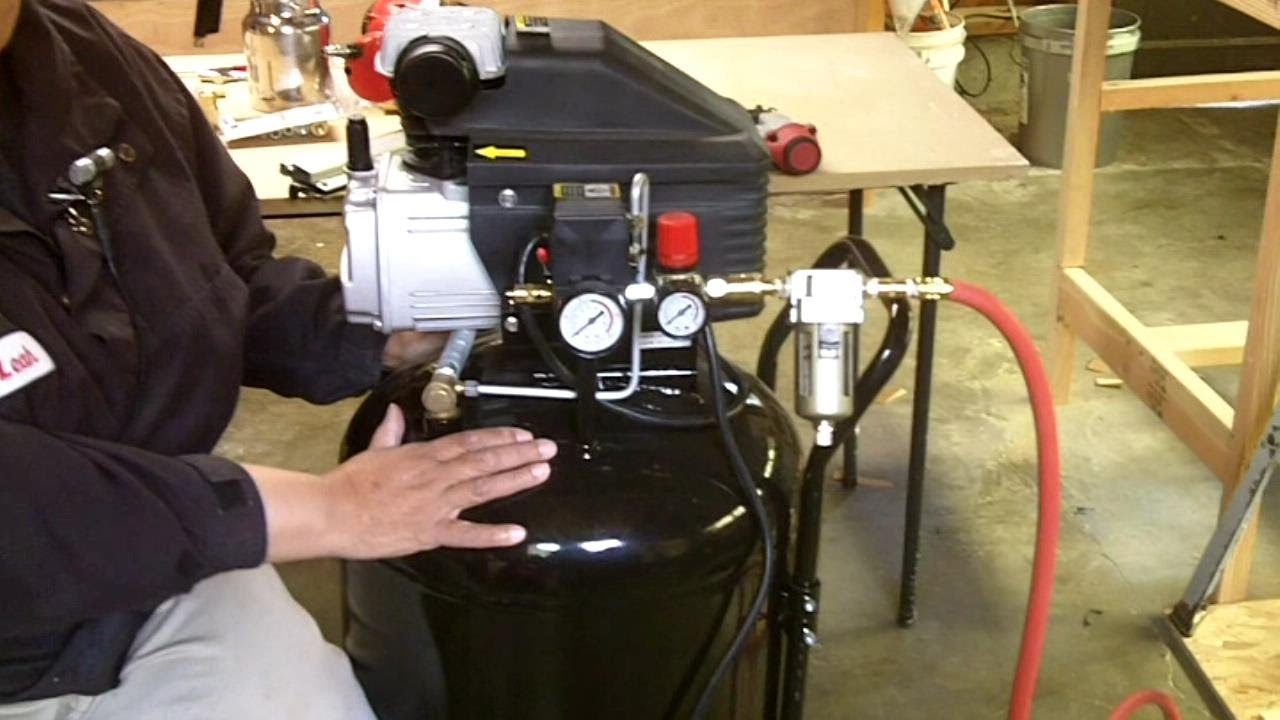
Stopping an air compressor from blowing oil is a common concern for many users. Fortunately, there are several easy ways to address this issue. By following these steps, you can effectively address and resolve the issue of your air compressor blowing oil, ensuring its efficient and reliable operation in the long run. Here are six methods how to stop an air compressor from blowing oil:
1.Tightening Connection
One common issue with air compressors is oil blowing out of the connections. This can be a messy and potentially dangerous problem. Fortunately, there is a simple solution: tightening the connections. Start by turning off the air compressor and allowing it to cool down completely.
Then, using an adjustable wrench or pliers, gently tighten the connections on both ends of the oil line. Be careful not to overtighten, as this can cause damage to the fittings. Once you have tightened the connections, turn on the air compressor and check for any oil leaks. If the problem persists, it may be necessary to replace the oil line or seek professional assistance.
2.Develop A Maintenance Schedule
Developing a maintenance schedule is crucial when it comes to preventing an air compressor from blowing oil. Regular maintenance can help identify and address any issues before they escalate, ensuring the longevity and efficiency of your equipment. Here are some key steps to include in your maintenance schedule:
- Check Oil Levels: Regularly inspect the oil levels in your air compressor and top up if necessary. Low oil levels can put excess strain on the system, leading to potential oil blowouts.
- Change Oil Filters: Replace the oil filters at recommended intervals to prevent clogs and ensure proper filtration. Clean filters allow for better oil flow and reduce the risk of oil blowouts.
- Monitor Air Quality: Keep an eye on the quality of compressed air produced by your compressor. Contaminants such as moisture and particulates can mix with the oil and cause blockages or damage, increasing the chances of an oil blowout.
- Inspect Seals And Gaskets: Regularly inspect seals and gaskets for signs of wear or damage. Faulty seals can result in leaks, leading to a loss of oil and potentially causing an oil blowout.
- Clean Cooling Systems: Ensure that cooling systems, such as radiators or heat exchangers, are kept clean and free from debris. Overheating due to blocked cooling systems can lead to increased pressure within the compressor, increasing the risk of an oil blowout.
By following a regular maintenance schedule that addresses these important factors, you can significantly reduce the likelihood of an air compressor blowing oil and maintain optimal performance for years to come.
3.Clean Or Change Filters
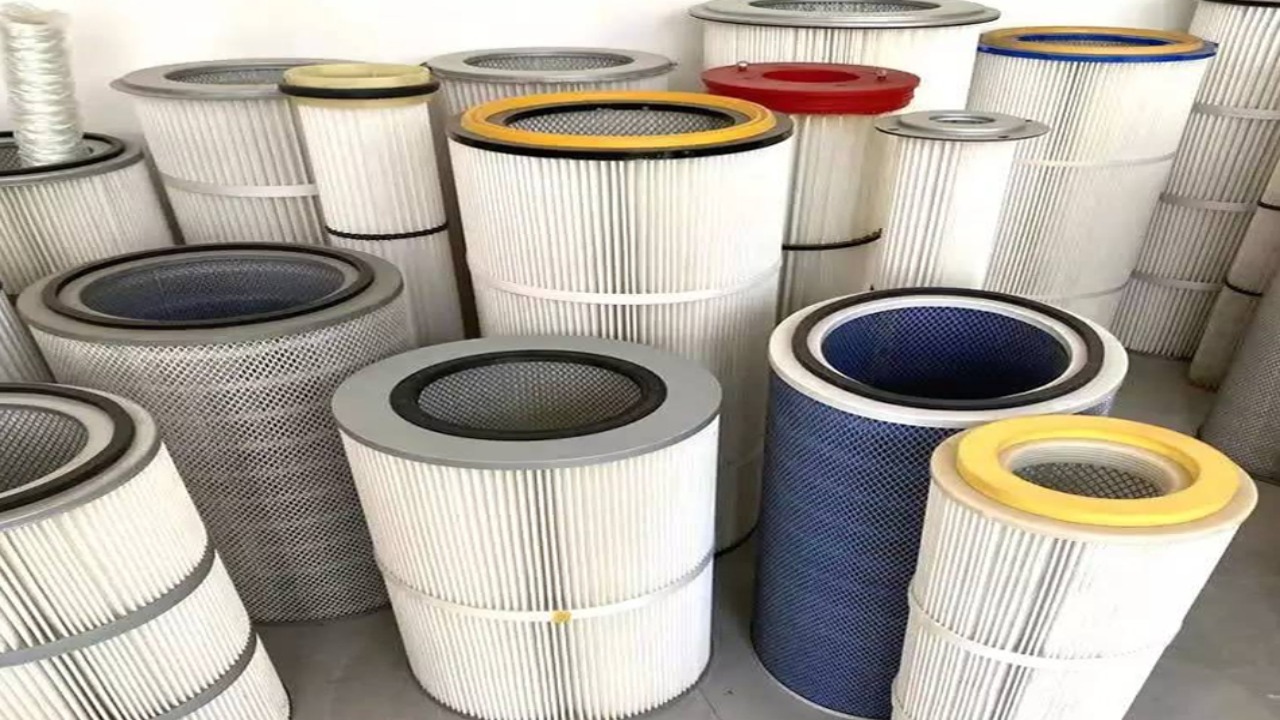
One way to stop an air compressor from blowing oil is to clean or change the filters. Over time, the filters in an air compressor can become clogged with dirt and debris, which can cause the compressor to overheat and blow oil. By regularly cleaning or changing the filters, you can ensure that the air compressor is operating efficiently and prevent oil from being blown out.
Additionally, it is important to check the oil level regularly and top it up if necessary to prevent the compressor from running on low oil, which can also lead to blowing oil. By taking these simple steps, you can maintain the performance of your air compressor and prevent any issues with oil leakage.
4.Ultrasonic Acoustic Detector
One effective way to stop an air compressor from blowing oil is by using an ultrasonic acoustic detector. This device can help detect leaks in the system by picking up high-frequency sound waves that are generated when there is a leak.
By using the detector, you can quickly identify the source of the leak and take appropriate action to fix it. This can help prevent further damage to the compressor and ensure that it continues to operate efficiently. It is important to regularly inspect your air compressor and address any oil leaks promptly to maintain its performance and extend its lifespan.
5.Reduce Downtime
Experiencing an air compressor blowing oil can be frustrating and lead to downtime in your operations. However, there are several steps you can take to prevent this from happening and reduce downtime. First, make sure that the air compressor is properly lubricated with the recommended oil. Regularly check the oil levels and top up as needed.
Additionally, inspect the air compressor for any leaks or faulty seals that may be causing oil to escape. Ensure that all connections are tight and secure. Another important step is to clean or replace the air filter regularly to prevent dust and debris from entering the system and potentially causing damage. By following these preventive measures, you can keep your air compressor running smoothly and avoid costly downtime.
6.Add Reliability
If your air compressor is blowing oil, it can be a frustrating and potentially costly issue. However, there are steps you can take to add reliability to your air compressor and prevent it from blowing oil. Here are a few tips:
- Regularly Check And Change The Oil: Make sure you are using the correct type and grade of oil for your specific air compressor. Additionally, regularly check the oil level and change it as needed to ensure optimal performance.
- Keep The Compressor Clean: Dust, debris, and other contaminants can cause damage to your air compressor and lead to oil blowouts. Regularly clean the exterior of the compressor and make sure that the intake vents are clear of any obstructions.
- Check For Leaks: Oil leaks can be a major cause of oil blowouts in air compressors. Inspect all fittings, hoses, and connections for any signs of leaks or damage. If you find a leak, repair or replace the affected component promptly.
By following these tips, you can help add reliability to your air compressor and minimize the risk of it blowing oil. Remember to consult your manufacturer’s instructions and guidelines for specific maintenance procedures for your particular model.
7.Replacing Parts
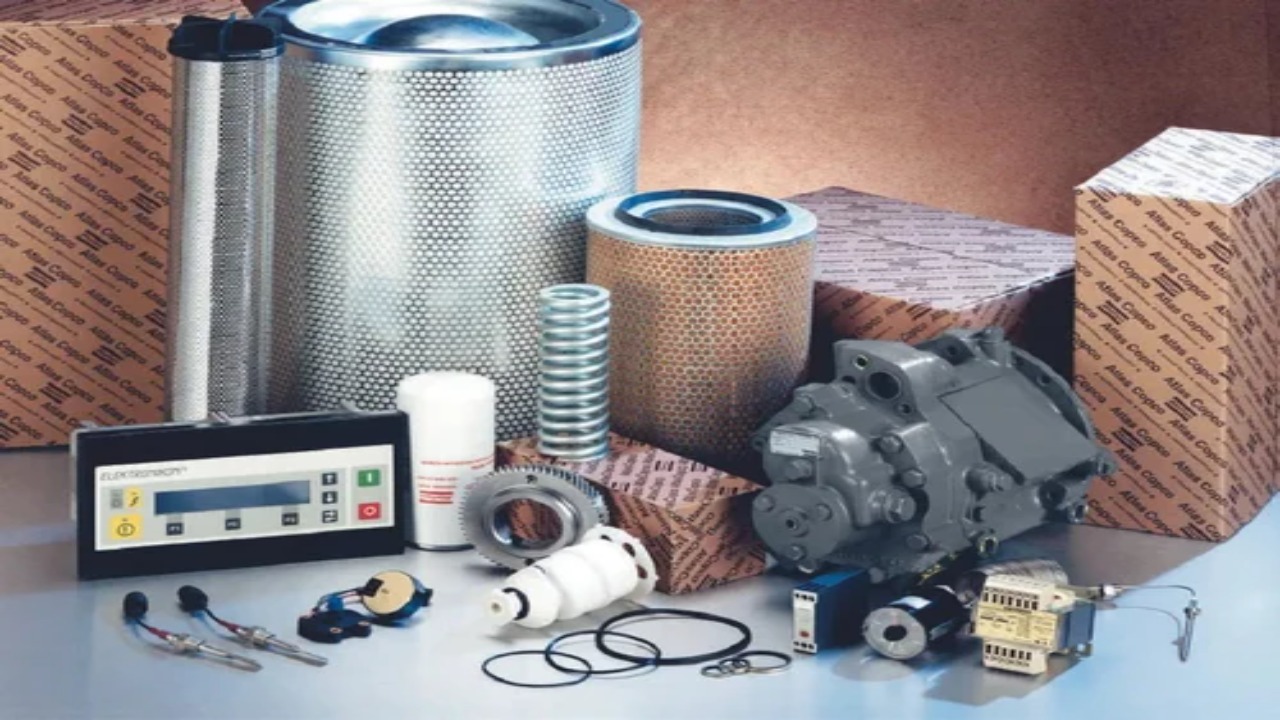
If your air compressor is blowing oil, it may be necessary to replace certain parts to resolve the issue. The first step is to identify which parts are causing the oil blowback. Common culprits include faulty piston rings or a worn-out valve plate.
Once you have determined the problem areas, you can purchase replacement parts from a reputable supplier. It is important to follow the manufacturer’s instructions when replacing these parts to ensure proper installation and prevent any further issues. By replacing the necessary components, you can stop your air compressor from blowing oil and restore its optimal performance.
9.Seek Professional Assistance
If you’re experiencing issues with your air compressor blowing oil, it’s important to seek professional assistance. While there are some troubleshooting steps you can take on your own, such as checking for leaks and ensuring proper maintenance, it’s best to leave the repairs to a trained technician.
They will have the knowledge and expertise to diagnose the problem accurately and provide the necessary repairs or replacements. Attempting to fix the issue yourself could result in further damage or void any warranties on your equipment. By relying on a professional, you can ensure that your air compressor is repaired correctly and safely, minimizing the risk of future oil blowouts.
Tips For Preventing Air Compressors From Blowing Oil
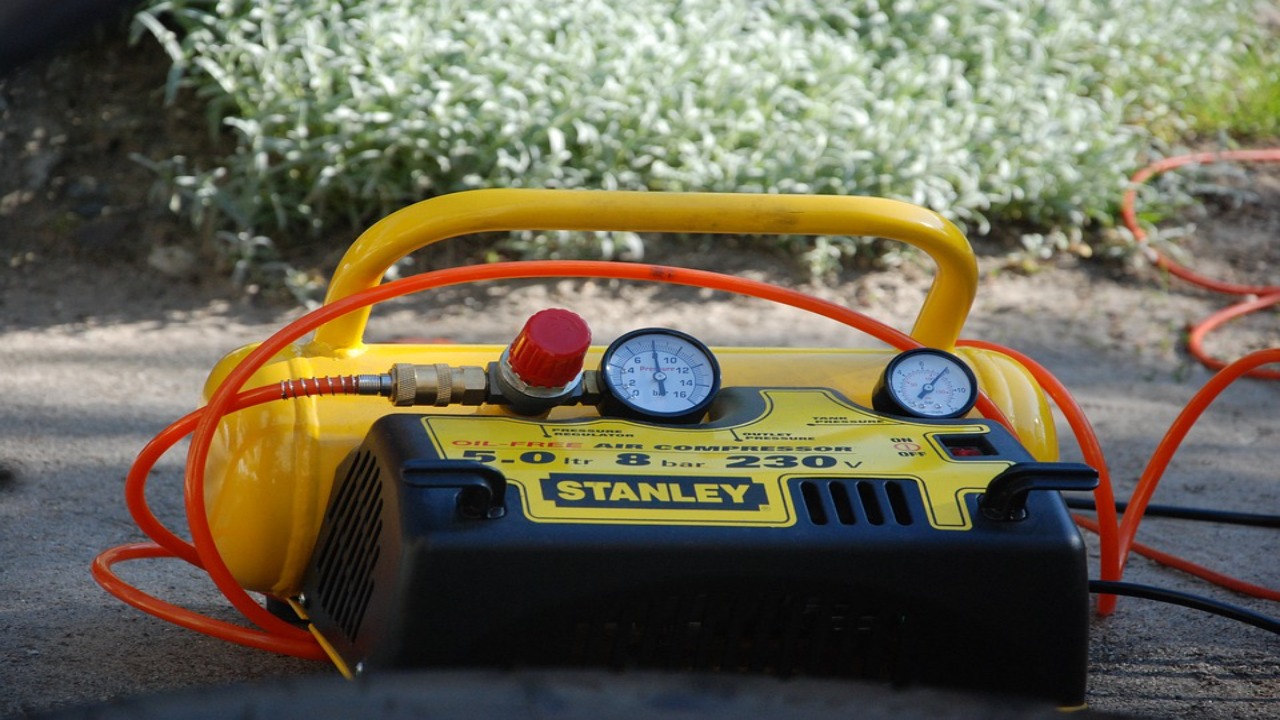
Preventing an air compressor from blowing oil is crucial for proper functioning and longevity. Here are some tips to help you keep your air compressor running smoothly without any oil leaks:
- Regularly Check The Oil Level: Make it a habit to check the oil level in your air compressor frequently. Low oil levels can cause excessive heat and friction, leading to blowouts. Ensure that the oil level is within the recommended range.
- Change The Oil Regularly: Over time, the oil in your air compressor can become contaminated with dirt, debris, and moisture, affecting its performance. Regularly changing the oil per the manufacturer’s instructions will help maintain the quality of the lubricant and prevent potential issues.
- Use High-Quality Oil: Opt for high-quality, recommended lubricants designed for air compressors. These oils have better resistance to heat and contaminants, ensuring optimal performance and reducing the chances of blowouts.
- Keep The Compressor Clean: Regularly clean your air compressor to remove any dust, debris, or oil buildup that may accumulate on external surfaces or inside components. This will help prevent clogs or blockages that could lead to pressure buildup and potential blowouts.
- Check For Leaks: Inspect your air compressor regularly for any signs of leaks or loose connections. If you notice any leaks around fittings or valves, address them promptly to prevent further damage and possible oil blowouts.
Following these preventive measures can minimize the risk of an air compressor blowing oil and ensure its efficient operation for years.
Conclusion
To prevent your air compressor from blowing oil, there are several easy ways you can implement. Regular maintenance and inspections are crucial to identify any signs of oil leakage or issues that may cause the compressor to blow oil. Checking the air compressor for signs of oil leakage, disconnecting the power if oil leaks, and shutting off the compressor are some emergency measures to prevent further damage.
Additionally, it is essential to test the oil level and ensure it is within the recommended range. Taking preventive measures such as using high-quality oil, keeping the compressor clean, and following manufacturer guidelines will help maintain the optimal performance of your air compressor. Implementing these tips can prevent your air compressor from blowing oil and ensure longevity. We hope you understand how to stop an air compressor from blowing oil.
Frequently Asked Questions
[rank_math_rich_snippet id=”s-35399504-4dc9-40cc-9fe1-2612255fa808″]

I am passionate about home engineering. I specialize in designing, installing, and maintaining heating, ventilation, and air conditioning systems. My goal is to help people stay comfortable in their homes all year long.

